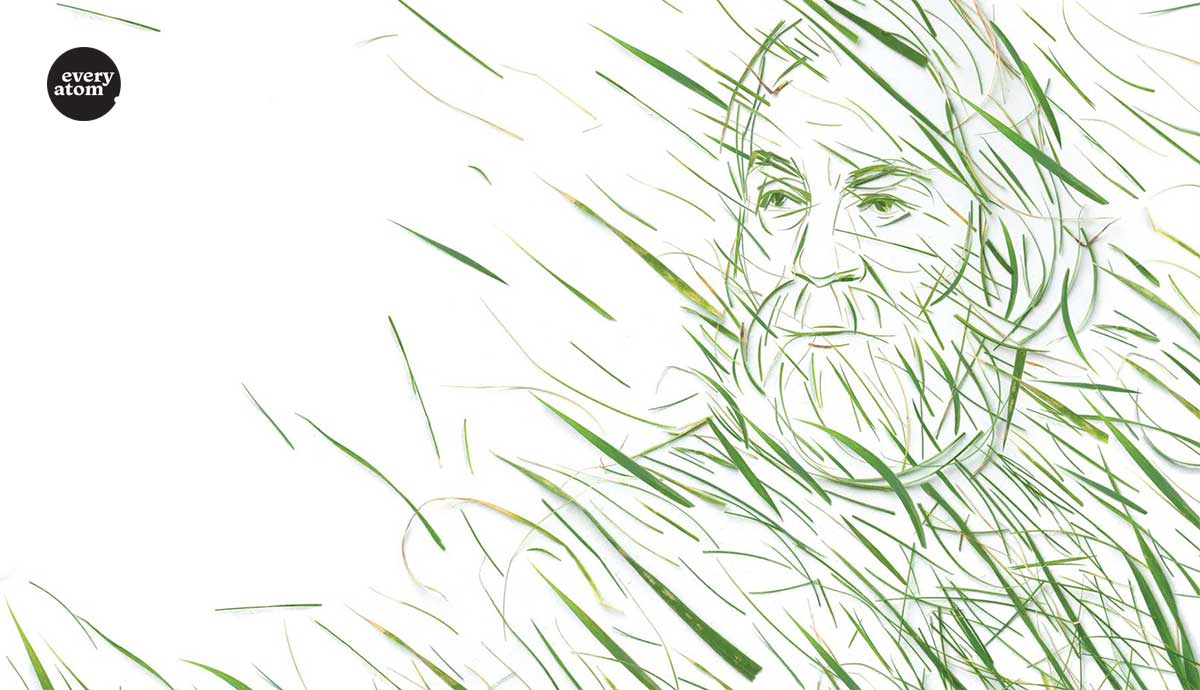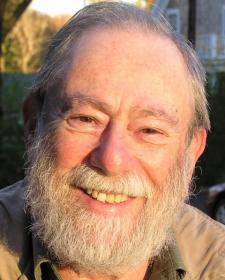Every Atom | No. 85
Introduction to Every Atom by project curator Brian Clements
Whitman’s Grass
Walt Whitman, brother to brothers and brother to sisters,
intimate to intimates, keeper of free birds and animals,
acceding to worldly abandon and the freedom of the darkness,
Whitman, who foresaw a love that is given freely, asking nothing,
himself was asked, “What is the grass?” Or so a child spoke it,
and brought forth handfuls of the stuff, snatched from the earth.
We do not have to look in the poet’s hands to know what grass is,
we do not look in books to read the cuneiform of the leaves,
nor enter the great libraries to deduce the signs of springtime.
Whitman studied the dark blades he had been given,
he saw the color green behind the color black, and saw, too,
a thousand sprouts unfolding from a single disposition.
There comes a time, in Whitman’s flowing lifesong of himself,
a moment when the poet is at sixes and sevens, that very instant,
when the disposition of the writer springs in two directions,
thrusting one way toward death and dying, old age and eyes closing,
while in the other direction reaching toward eye-openings at birth,
and with each hand he clasps the other, making them siblings.
You, the reader, must locate this moment in Leaves of Grass,
you must pull the rug out from underneath democratic optimism,
you must stand on the bare earth and the bearded earth,
you must grant that the flag blowing in the wind leads to death,
you must, wishing to live forever, hear the poet arrest the wish,
and you must free mortality and immortality to be wed in the earth.
I am as fathomless as he, and you the manifest of eternal life,
I am the perceiver, and the receptor, of all he sees, as are you,
I am born of the smallest atom, and of the aggregate of atoms,
as you are that one whom he would have loved, as would I,
and I am he to whom the abstraction love takes form in the grass,
and to whom the word made flesh is as the rain on the field.
Walt Whitman, purveyor of unaccompanied journeys in the self,
star salesman of the constellations, of inner organs, of our ashes,
relentless believer in a universal scheme, yet hard at work,
I, a fellow islander, following you, echoing you, singing you,
preferring the organic to the inorganic, yet awed by the stellar,
throw you my casual salute and confide in you, and never ask.
What would later become section 6 of “Song of Myself” starts with a child asking Whitman, “What is the grass?” The poet will say that he does not know what it is any more than does the child. Whitman goes on to try out ways of saying what grass is, at first calling it “the flag of my disposition.” So many ways of saying what grass is to him that he limns the arc of life and death. So many that he bespeaks, in his way, of the life force and of the energy (think force field) that recreates material life from material death. He is ever the poet who will leave an astronomy lecture to look at the stars.
Recommended
Nor’easter
Post-Op Appointment With My Father
Cedar Valley Youth Poet Laureate | Fall 2024 Workshop







